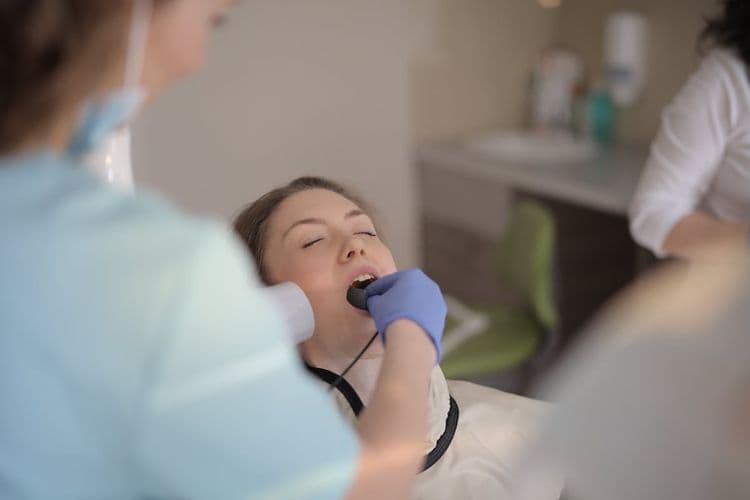Maneuvering the complexities of dental care can be intimidating for anyone, but for individuals with special needs, the challenges can be even more significant. Special needs dentists, with their distinct blend of expertise and compassion, bridge this gap, providing a much-needed service to a diverse and under-served population. However, the reach and potential impact of this discipline are yet to be fully realized. The question then arises: what makes a dentist ‘special needs’ proficient, and how does such proficiency contribute to thorough healthcare for patients with unique requirements? Let’s explore this further.
Understanding Special Needs Dentistry
A significant portion of our population requires special needs dentistry, a specialized field that focuses on providing oral health care to individuals with physical, medical, developmental, or cognitive conditions. This form of dentistry, although demanding, is crucial for ensuring that all individuals receive the oral care they deserve.
Patient communication is a cornerstone of special needs dentistry; understanding and addressing the unique needs of each patient are fundamental. Sensory integration, an approach that helps patients cope with dental procedures, is also a significant aspect. It involves creating a supportive environment that minimizes discomfort, anxiety, and stress. Understanding special needs dentistry is critical in fostering empathy for the unique challenges these patients face, and for promoting thorough, patient-centered care.
The Role of a Special Needs Dentist
Dedication takes center stage in the role of a special needs dentist, as they navigate the complex challenges inherent in providing oral health care to individuals with special needs. Their role extends beyond traditional dentistry, demanding the use of specialized techniques to guarantee the comfort and safety of their patients.
A central part of their role hinges on patient communication; understanding the patient’s needs, fears, and limitations. This requires not only technical skill but also empathy, patience, and a deep understanding of the unique circumstances presented by each patient. Their role is thus a delicate blend of specialized healthcare provider and compassionate advocate, ensuring that individuals with special needs receive the oral health care they deserve.
Training and Qualifications Required
Building on the commitment and empathy inherent in the role of a special needs dentist, a specific set of training and qualifications is required to effectively carry out this delicate task. This includes a dentist’s degree, followed by specialized training in treating patients with physical, mental, and emotional special needs. Continuing education is a must, as this field is continuously evolving, with new techniques and treatments developing over time. Additionally, the ability for patient communication is vital. Being able to convey complex information in a simple manner, and showing patience and understanding in the face of potential communication difficulties is key. These qualifications guarantee that a special needs dentist can provide the best possible care.
Common Dental Issues in Special Needs Patients
Patients with special needs often face a unique set of dental challenges such as gum diseases, tooth decay, and oral sensitivity. These issues, while common, require a nuanced understanding and a tailored approach to management. Let us explore each of these in more detail to better our knowledge and practice in dental care for our special needs patients.
Understanding Gum Diseases
While it is true that anyone can suffer from gum diseases, in the case of special needs patients, these issues often become more prevalent and complex to manage. It’s important to understand that gum diseases are a serious concern that require attention for both the patient’s overall health and quality of life. Good oral hygiene, including regular brushing and flossing, is key for gum disease prevention. Periodontal treatment, a specialized process that targets the gums and structures supporting the teeth, is often necessary to manage existing gum disease. Compassionate care from a knowledgeable dentist, coupled with vigilant home care, can help special needs patients maintain good oral health and prevent the progression of gum diseases.
Managing Tooth Decay
Tooth decay can stealthily undermine the dental health of special needs patients, presenting challenges that demand effective management. Special needs dentists are armed with the knowledge and patience to combat this pervasive problem, as they understand the unique circumstances that these patients face.
Tooth decay prevention plays an essential role in managing dental health. Regular brushing and flossing, combined with professional cleanings, can greatly reduce the risk of decay. Dietary recommendations are also fundamental to maintaining oral health. Limiting sugar intake, encouraging consumption of water over sugary drinks, and promoting a balanced diet rich in calcium and vitamins are all critical strategies. Through empathetic, informed care, we can help special needs patients prevent tooth decay and maintain their smiles.
Addressing Oral Sensitivity
Beyond the domain of tooth decay, another common dental issue that special needs patients often grapple with is oral sensitivity. This can manifest in the form of discomfort or even pain when brushing, flossing, or during dental procedures. Dental professionals must approach these cases with empathy, patience, and extensive knowledge to provide the most effective care. Oral desensitization techniques are often employed to gradually decrease the sensitivity, using a step-by-step process tailored to each individual’s needs. Combining these techniques with sensory integration strategies can make the dental experience less intimidating for special needs patients. These strategies may include the use of calming, non-threatening tools, and creating a soothing environment to enhance the patient’s comfort.

Special Needs Dental Procedures
Special needs dentistry is a nuanced field that requires a thorough understanding of both standard and specialized dental procedures. It’s vital to recognize the common practices involved, from preventive care to complex restorative work, and how they are tailored for patients with special needs. The keystone of this treatment approach is ensuring comfort and ease during procedures, creating a positive dental experience for every patient.
Understanding Special Needs Dentistry
While the domain of dentistry is vast and varied, understanding special needs dentistry requires a particular focus. This branch caters to individuals with physical, developmental, or cognitive conditions that necessitate an alternative approach to dental care. Special needs dentists employ adaptive communication strategies to make their patients feel comfortable and understood. These strategies may involve simplified language, visual aids, or patient-guided interaction. Additionally, the essence of this dentistry field lies in creating individualized care plans. These plans reflect each patient’s unique circumstances and are designed with patience, empathy, and an extensive understanding of their specific needs. Ultimately, special needs dentistry emphasizes a personalized and compassionate approach to promote ideal oral health for all.
Common Dental Procedures
Steering through the landscape of dental procedures can be challenging for individuals with special needs, but a tailored approach can greatly ease this journey. Special needs dentistry focuses not just on the treatment but also on preventive care, emphasizing the importance of good oral hygiene.
- Routine Check-ups: Regular dental visits are essential in early detection and treatment of potential problems.
- Cleaning Procedures: Deep cleaning can prevent gum diseases and tooth decay, thereby preserving oral health.
- Restorative Dentistry: This includes fillings, crowns, or bridges, to restore the function and aesthetics of the teeth.
Understanding these procedures can help in making informed decisions, ensuring ideal oral health for individuals with special needs.
Ensuring Comfort During Procedures
Maintaining a sense of comfort during dental procedures is paramount, particularly for individuals with special needs. These patients may present unique challenges, and it’s essential to address their concerns with empathy and patience. A range of comfort measures can be employed to guarantee a relaxed and pain-free experience. This may include the use of specially designed dental chairs, calming music, or distraction techniques. Sedation options, such as nitrous oxide or general anesthesia, can also be considered, depending on the procedure and the patient’s specific needs. The goal is always to provide a safe, comfortable, and stress-free dental visit. Remember, in the hands of a trained special needs dentist, dental care can be a positive and manageable experience.
Benefits of Special Needs Dentistry
Understanding the unique benefits of special needs dentistry is instrumental in promoting ideal oral health for individuals with special needs. These benefits extend beyond the dental chair, providing both accessibility improvements and caregiver support.
- Special needs dentists are adept at modifying their approach to accommodate varying abilities, thereby enhancing accessibility.
- Specialized training equips these dentists to manage unique dental issues inherent to certain conditions, ensuring effective treatments.
- Caregiver support is another significant benefit. Special needs dentists often provide guidance to caregivers on maintaining oral hygiene between visits.
This focused care is essential in ensuring good oral health while respecting the unique needs of these individuals. It’s a specialized form of care that truly makes a difference.
Choosing the Right Special Needs Dentist
While acknowledging the benefits of special needs dentistry is important, finding the right dentist who can deliver these benefits is equally essential. A skilled special needs dentist should exhibit not only technical prowess but also exceptional patient communication. They will patiently explain procedures, offer reassurances, and create an environment of trust. Equally important, is the involvement of caregivers in this process. The dentist needs to be open to their valuable insights, concerns, and suggestions, fostering a team approach to care. The right professional will demonstrate empathy, adaptability, and a deep understanding of special needs individuals. In this way, they can meet the unique challenges and provide the highest level of oral health care for these patients.
Best Practices for Special Needs Dental Care
A staggering number of special needs individuals struggle with maintaining ideal oral health, which underscores the necessity for established best practices in special needs dental care. These best practices aim to create an environment that is not only accessible but also comfortable for the patient.
- Adaptive techniques: These can range from modified dental equipment to specialized treatment methods that cater specifically to the patient’s needs. For instance, using a mouth prop can help patients who struggle with muscle control.
- Communication strategies: This involves using simple and clear language, visual aids, or even sign language to guarantee the patient understands the procedure.
- Patience and Empathy: A dental visit can be stressful. Consequently, a calm and patient approach, coupled with empathy, can greatly ease patient anxiety.
Frequently Asked Questions
What Is the Average Cost of Special Needs Dental Care?
The average cost of this specific dental care can vary considerably due to several cost factors, such as treatments required and location. However, financial assistance may be available to help manage these expenses.
Are There Any Dental Insurance Plans That Cover Special Needs Dentistry?
Yes, several dental coverage options exist that cover special needs dentistry. However, insurance eligibility criteria vary across providers. It’s advisable to thoroughly review potential plans to guarantee they adequately meet the patient’s specific needs.
How Often Should a Special Needs Patient Visit the Dentist?
The frequency guidelines for dental visits vary per individual. However, for ideal dental health, it’s generally recommended that patients schedule appointments every six months, or more frequently if advised by their healthcare professional.
What Can Be Done to Make a Special Needs Patient Comfortable During a Dental Visit?
Implementing sensory accommodations, such as minimizing loud noises and bright lights, can enhance comfort levels. Additionally, clear and patient communication tailored to the individual’s understanding and needs is essential for a positive dental experience.
Can Special Needs Dentists Also Treat Patients Without Special Needs?
Absolutely, practitioners in special needs dentistry are fully equipped to treat all patients, demonstrating inclusive practices. Their extensive training guarantees they can provide quality dental care to individuals regardless of their needs or abilities.


